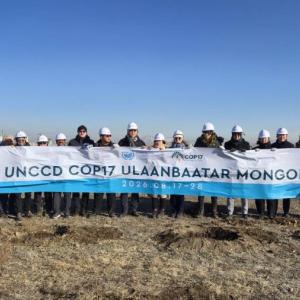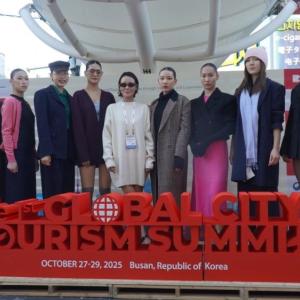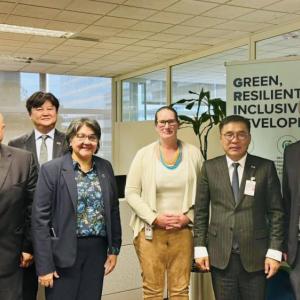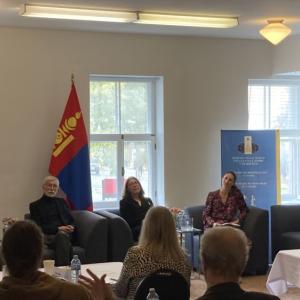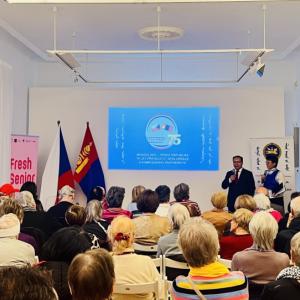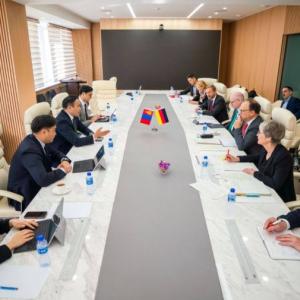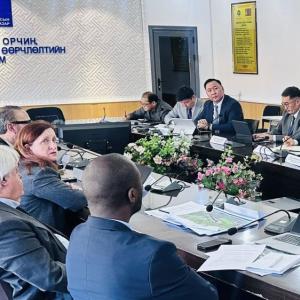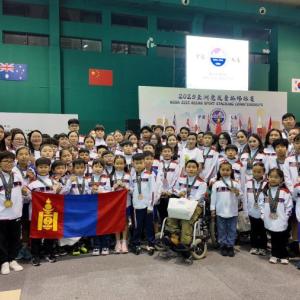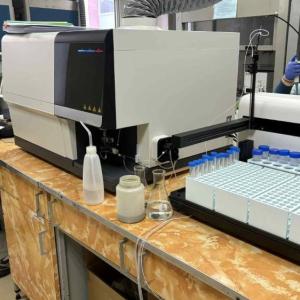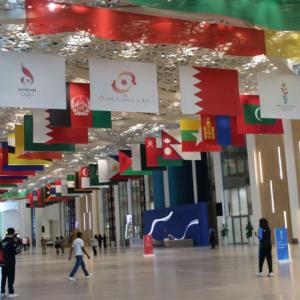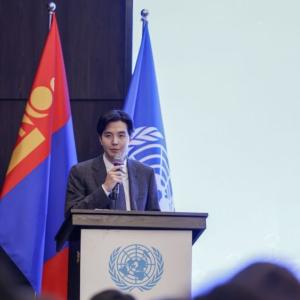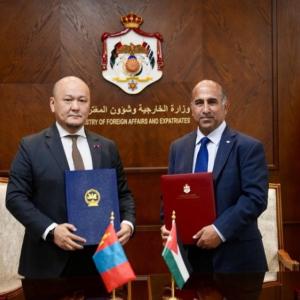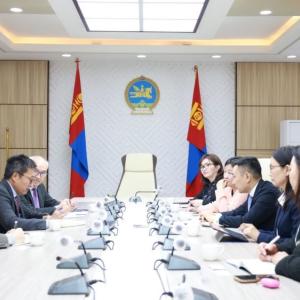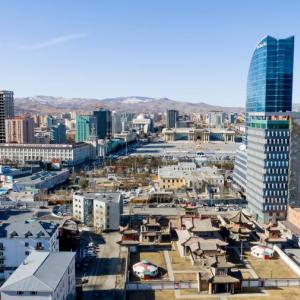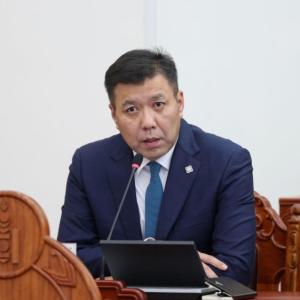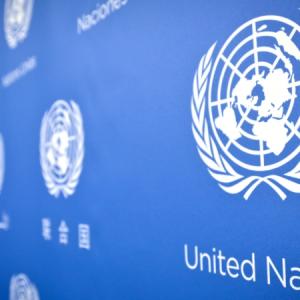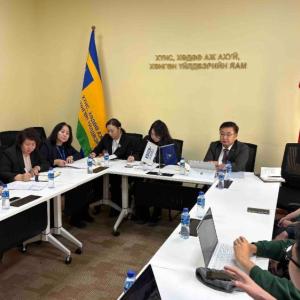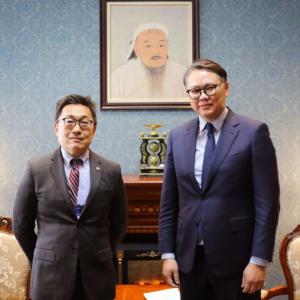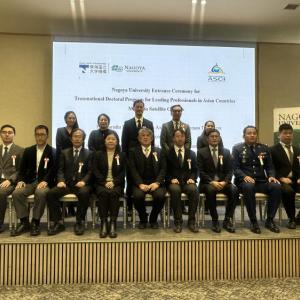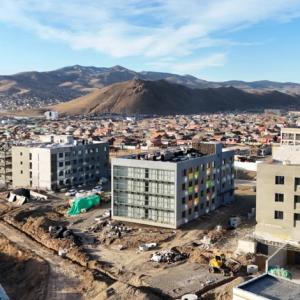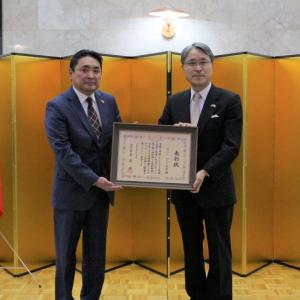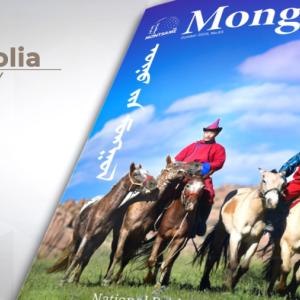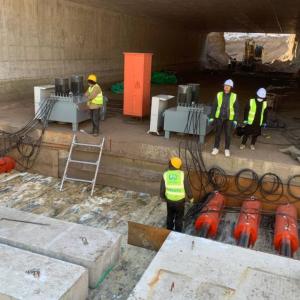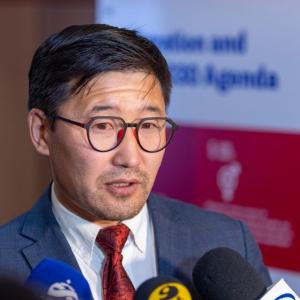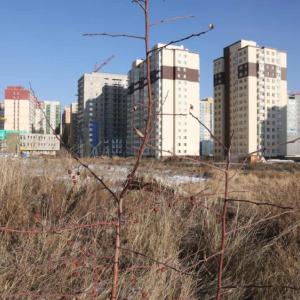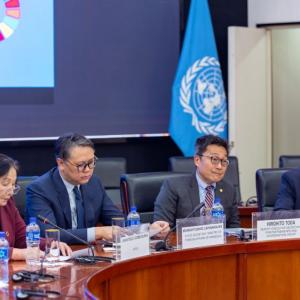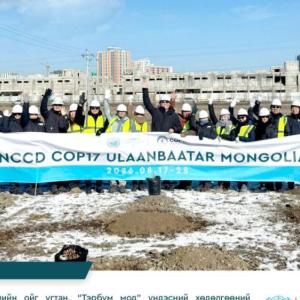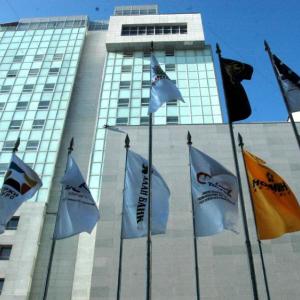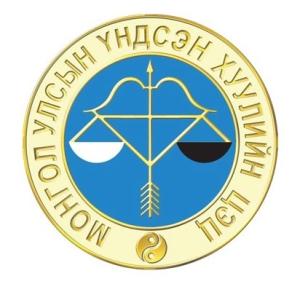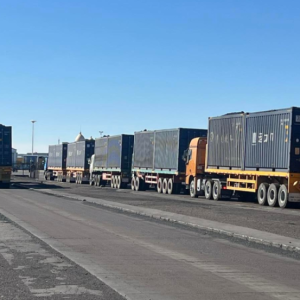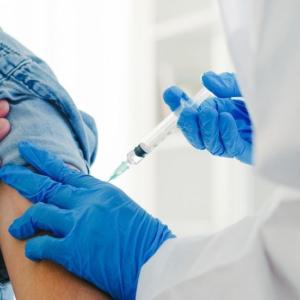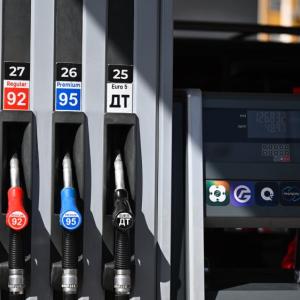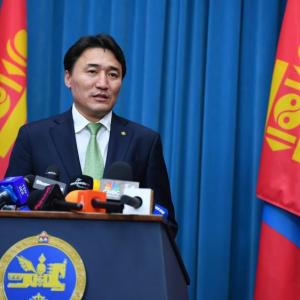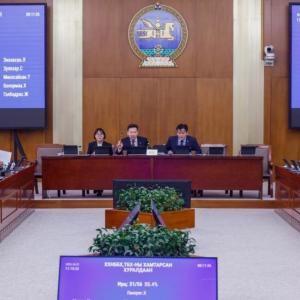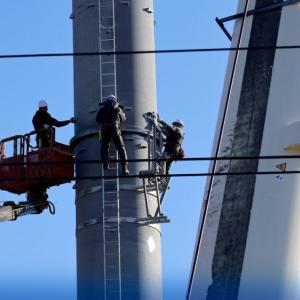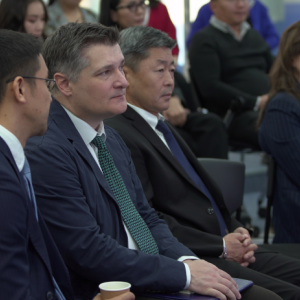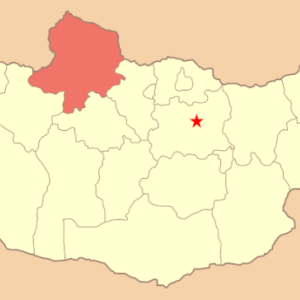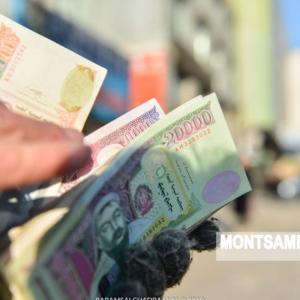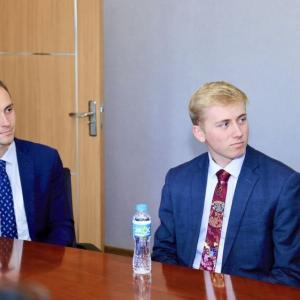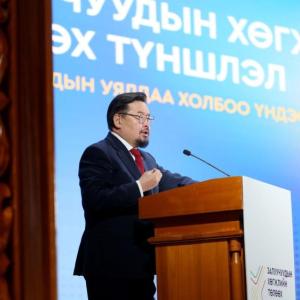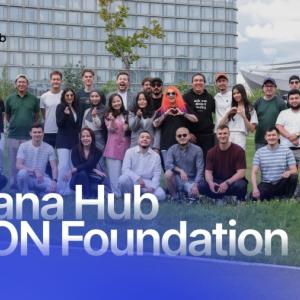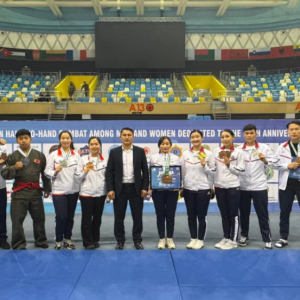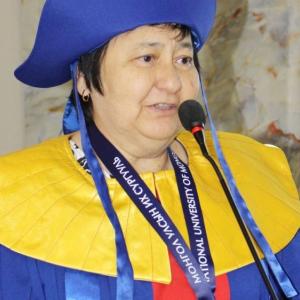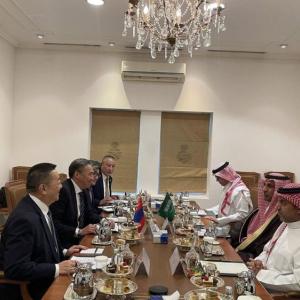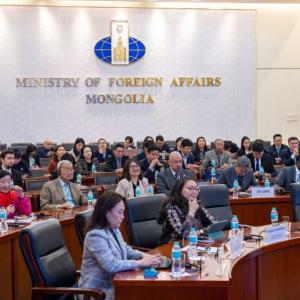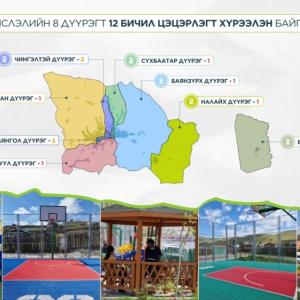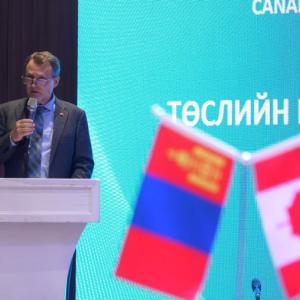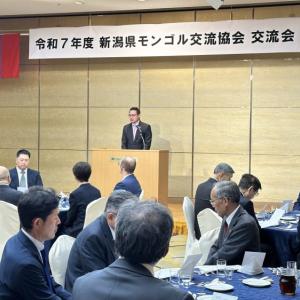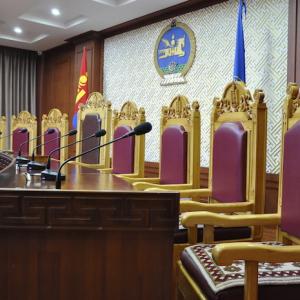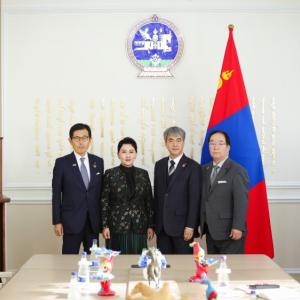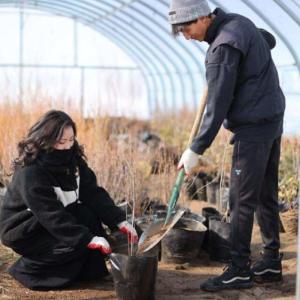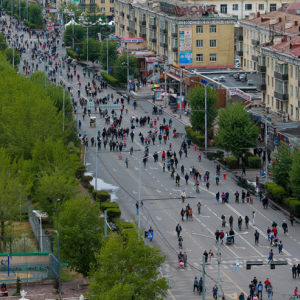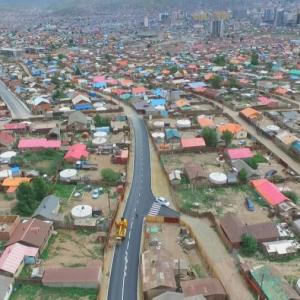National Workshop on Effective Governance for Sustainable Development Kicks off
Society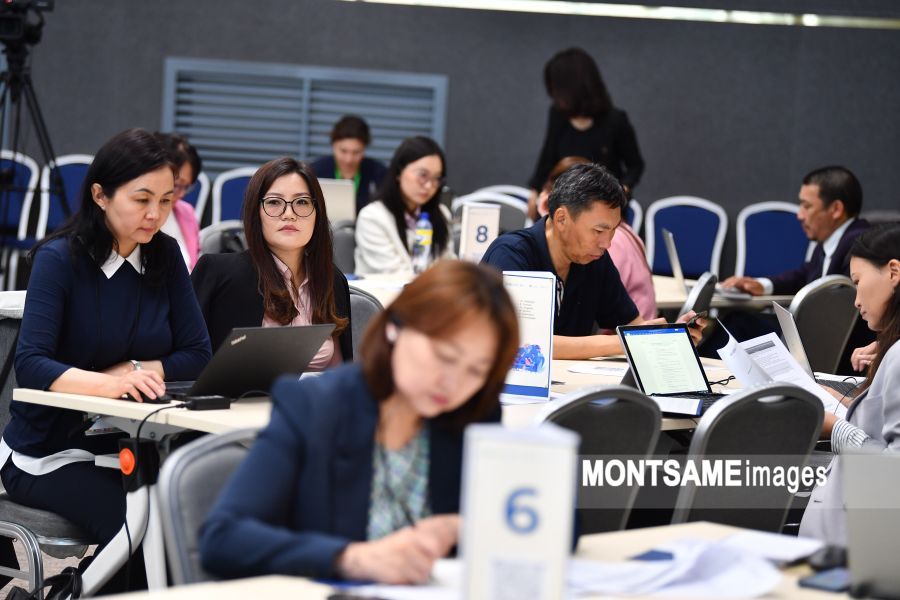
Ulaanbaatar, June 8, 2023 /MONTSAME/. The National Workshop on Effective Governance for Sustainable Development in Mongolia kicked off on June 8 at the National Academy of Governance.
The workshop is organized by the National Academy of Governance (NAOG) of the Government of Mongolia, and MONTSAME, Mongolian National News Agency in collaboration with the United Nations Department of Economic and Social Affairs (UN DESA), through its Division for Public Institutions and Digital Government (DPIDG) and Project Office on Governance (UNPOG), and with the support of the UN Resident Coordinator Office in Mongolia and United Nations Development Programme (UNDP) in Mongolia
The participants are also discussing specific topics in small groups and exchange ideas and information on practical examples and lessons learned from other countries to see if and how good international practices can inspire similar action at the national and local levels.

During her speech at the opening ceremony of the workshop, Dr. Surenchimeg Dulamsuren, the Rector of the National Academy of Governance, underscored, "While Mongolia has indeed implemented several projects and programs in collaboration with the United Nations to address various challenges and promote development, it is evident that more efforts are required to ensure effective governance in Mongolia. The national workshop encompasses a wide range of discussions on how we can collaborate to achieve effective governance and the importance of aligning our efforts with governance.” On June 7, professors from the National Academy of Governance underwent training on effectively delivering Sustainable Development Goals (SDGs) to public servants.”
Noting the successful containment of the COVID-19 pandemic in Mongolia and the country's ongoing economic recovery, UN Resident Coordinator in Mongolia Tapan Mishra said, “The recent special edition report of the Secretary-General of UN on “Progress towards the Sustainable Development Goals” demonstrated that just 12 percent of the assessable SDGs targets are on track. Achieving Sustainable Development Goals will require strong political leadership, institutions, and processes and a willingness to change, and good, outcomes-based governance. The Government needs to align national policies with the breadth and complexity of the SDGs and must involve stakeholders in policy design, implementation, and results monitoring and evaluation. The goals cannot be peripheral to the Government. They must be integrated into governments’ national sustainability and development plans and approached from the top down and the bottom up. Good governance will help by fostering an environment for collective action, ensuring that the actors involved are held accountable and dealing with emerging complex trade-offs between the goals. Integrated thinking (designing and implementation) and integrated reporting are fundamental to achieving good governance and driving positive outcomes. Given its importance in driving the efforts to meet the goals, governance has been referred to as the fourth pillar of sustainable development – together with social, environmental, and economic factors.”

He also said, “SDGs cannot be achieved by the Government or UN only. SDGs are everyone’s business. Stakeholders can serve as a powerful force for making changes. The success of the achievement of SDGs depends to a large extent on leadership and coordination by the Government for leveraging and ensuring the whole of society's efforts for SDGs. The capacity of civil servants for delivering quality services is instrumental for the government’s ability to perform its functions therefore the training workshop organized jointly by UNPOG and NOAG is timely and extremely relevant for Mongolia. The UN Mongolia co-signed the UN Sustainable Development Cooperation Framework (UNSDCF) 2023-2027 of Mongolia with the Government on 20 May 2022. The UNSDCF has three strategic priority areas and one of the priorities is focusing on “People-centered governance, rule of law and human rights.”
Mr. Juwang Zhu, the Director Division for Public Institutions and Digital Government, United Nations Department of Economic and Social Affairs, made opening remarks that “Achieving the 2030 Agenda and Mongolia's Long-term Development policy Vision-2050 is our collective endeavor. It demands strong and committed actions from governments at all levels of development and from all sectors of society. The pandemic exposed and exacerbated existing fragilities and inequalities and put the resilience of public institutions to the test. Ineffective institutions undermine the delivery of public services and broader sustainable development. To accelerate the SDG implementation, public institutions and political leaders must deliver change quickly and at a larger scale than ever before. Mongolia has made significant progress in sustainable development's economic, social, and environmental dimensions. Yet, many challenges for political leadership and public governance systems remain, as identified in the Voluntary National Review 2019 (VNR), UN Common Country Analysis, and United Nations Sustainable Development Cooperation Framework (2023-2027) Mongolia. This workshop is an opportunity to address the challenges by enhancing Mongolia's policymaking to be more coherent, integrated, and evidence-informed. The workshop also seeks to make governance institutions more transparent, accountable, and participatory and align national and sub-national priorities and targets, integrating SDGs into the medium and short-term policies.”
On June 9, Mongolia will present its second VNR on the SDG implementation at the United Nations. Out of the 154 indicators of the UN SDGs, Mongolia has made changes to 84 of them. The country has set a target to achieve 32 goals by 2040, while 36 goals should be intensified, and 16 goals have seen setbacks.
Unfortunately, Mongolia received the lowest rating for SDG 1: No Poverty during the COVID-19 pandemic in 2020. This indicates that the country faced significant challenges in addressing poverty during that time.
Mongolia's Voluntary National Review on SDGs implementation will include reports on how the COVID-19 pandemic, geopolitical conflicts, and rural area development have impacted the progress toward the SDGs. Furthermore, Mongolia will report on its SDGs progress during the UN High-Level Forum scheduled for July 2023. Mongolia presented its first VNR in 2019.
The workshop will take place until June 13.
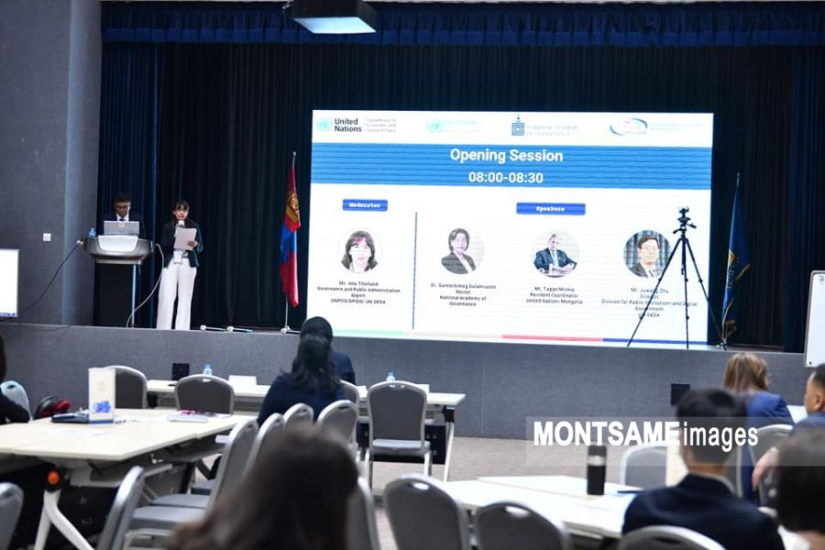
 Ulaanbaatar
Ulaanbaatar







